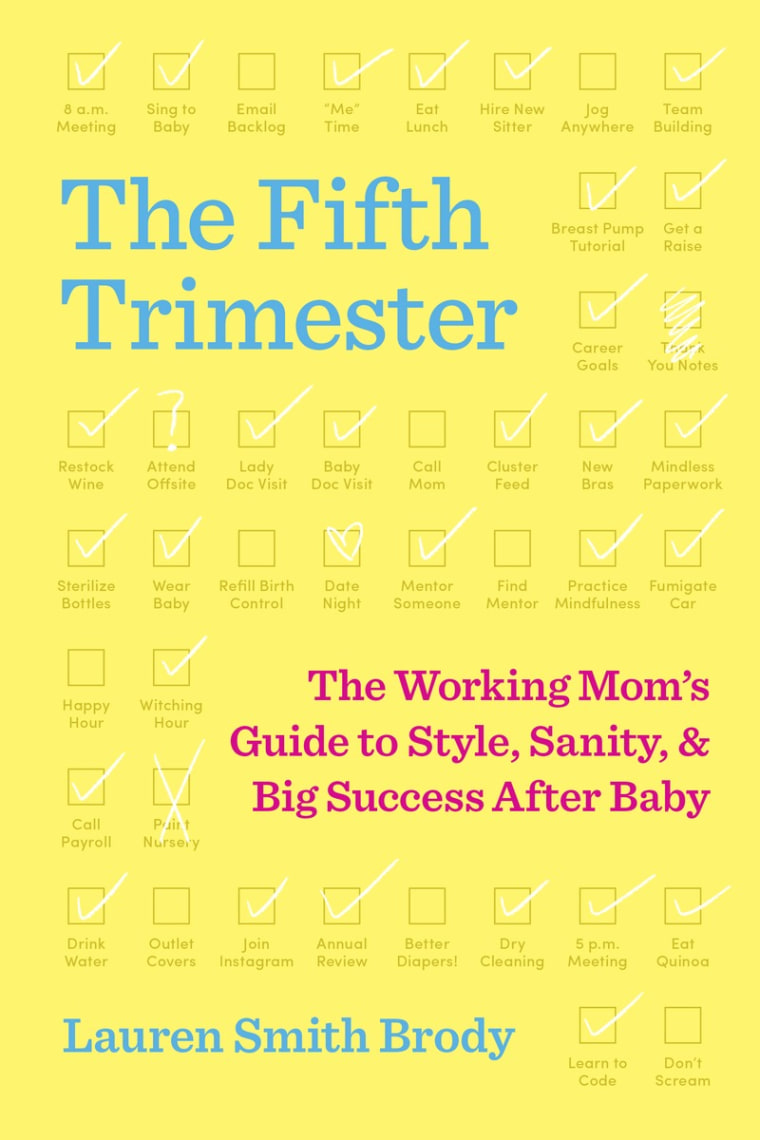It occurred to me one night — lying awake in bed at an ungodly hour for the hundredth time since my new son was born — that the words “worrier” and “warrior” sound awfully similar. My baby had drifted peacefully back to sleep, belly full of milk. My husband sawed proverbial logs next to me under the covers, exhausted from his own workday. And I laid there, full of 3 A.M. adrenaline, preparing for all of the battles tomorrow might bring:
- That our caregiver might call in sick;
- That my boss would schedule a meeting for 5pm;
- That I’d spill breastmilk on my keyboard while pumping—due to insomnia-induced lack of coordination, naturally.
I would go on, but if you’re a new working mom, surely you have your own list.

Don’t do what I did and fret, additionally, that something’s wrong with you for not joyously bounding into new motherhood. Have you ever met a carefree new working mother? I have not—and I interviewed hundreds about their back-to-work experiences for my new book The Fifth Trimester: The Working Mom’s Guide to Style, Sanity, and Big Success After Baby. The upshot: In America, most women go back to work before we’re emotionally ready. But learning from one another’s experiences can scratch many, many of the worries off of your list. So, officially, 732 women, 100 medical studies, and dozens of experts confirm:
You do not need to worry…
1) That your baby will love your caregiver more than he loves you. This is such a common fear, and one that can distract you all day long if you let it. I did a deep dive into the scientific research about the childcare decisions we make for our babies — daycare versus nannies versus stay-at-home parent care — and while there are subtle differences in the way each affects your child’s development, the overriding takeaway is this: The biggest factor in determining how well your child does in someone else’s care is your own comfort with that care. What that means is that a) you might make some childcare decisions based on your emotional gut reaction, not purely logistics, and that’s fine; and b) it would behoove you and your kid to realize that the more love this child has in his life, the better. You are irreplaceable, but your baby’s capacity to soak up love is bottomless. Know that, and he’ll feel it.
2) That your co-workers will resent you forever for all the work they covered for you while you were out. You know what emotion most employees experience when you return to work after being away? Relief! But not just because you’re able to take that project or shift back over. When you come back — even if you’re struggling through the transition — you help normalize the whole notion of bringing your real self to work. That co-worker might not have children yet. But he or she definitely has a personal life that matters to them as much as yours does to you. Make it clear that you appreciate that fact. Offer to return some favors, and you’ll have a better working relationship than ever.
3) That you can never get to 50/50 at home. Yes, you can. You might just have to adjust how you tally those percentage points. Let me explain: In terms of time — especially if you’re breastfeeding — you may well spend more minutes on home and baby care than your partner does at first. That will shift over time as the baby’s needs change (I say this, years later, as a wife of a man who really does do half of the cooking and laundry; we got there). But even very early on, you can ask your partner — straight up ask — for the support you need that counts the most. What makes you feel most cared for? What shift of duties would allow you to do the bits of babycare that give you the most pleasure? What’s the one thing your partner could say every day to make you feel appreciated and loved for the massive work you’re putting in? Identify those things and ask for them, and you will feel that balance.
RELATED
